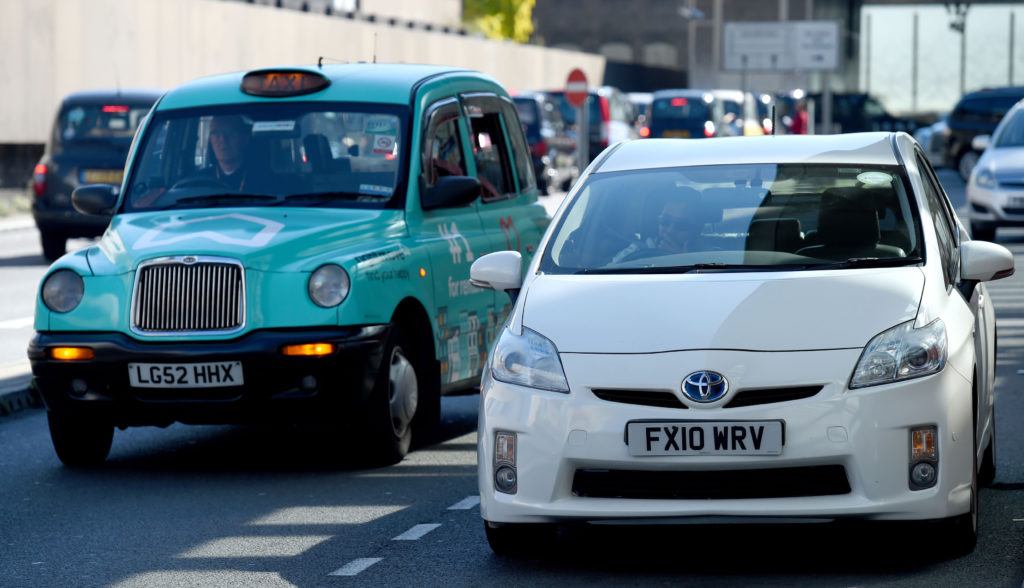Credit: Matt Alexander/PA Wire/PA Images
I am not one of the 3.5 million passengers who took an Uber in London last year and face being inconvenienced by the decision of the city’s transport executive, Transport for London, not to renew the company’s licence. Nor, for the past dozen years at least, have I taken one of London’s black cabs. My preferred way of getting around any city is walking. You can look at the architecture rather than anxiously staring at a rapidly-whizzing dial. The exercise means you don’t need to worry about visiting the gym, and on many journeys in central London it isn’t a lot slower.
Do I care, then, about the fate of Uber and its 40,000 drivers in London? Yes, because protectionism is ultimately bad for all of us. It stands in the way of productivity growth – the very lifeblood of wealthy societies.
Transport for London’s reasons for refusing to grant the licence are unconvincing. It cites Uber’s approach to reporting crime and obtaining medical certificates – matters which surely would be easy enough to solve through talking to the company. According to Uber, the issues quoted by Transport for London were never raised in discussions – it claims that a series of meetings prior to last week’s announcement were cancelled.
The decision looks rather more a case of a public body stepping in on behalf of two vociferous vested interests: left-wing unions and drivers of black cabs. Uber has been squashed because it is a threat to existing labour. We have become used to industries falling to the disruptors but this, it seems, was a disruption too far. You don’t have to support all of Uber’s employment practices to be concerned at the implications for the future of other innovations which powerful interests might find inconvenient.
That Uber has worked in the interests of the consumer is hard to deny. In a study of 21 US cities, in all but two Uber was found to have undercut existing taxi services. In Its 2016 survey ‘Mapping the World Prices’, Deutsche Bank found a knock-on effect of reducing fares charged by existing taxis – by 30% in the case of New York. As for the suggestion that passengers are paying for their cheap rides through reduced safety it doesn’t stand up to the evidence. In New York complaints against taxi drivers saw an overall reduction after Uber began services in the city. That suggests, if anything, that the coming of Uber forced existing taxi companies to improve driving standards and the civility of their drivers.

But has it all come at the expense of taxi-drivers themselves? Inevitably when industries are disrupted someone gets hurt. An Oxford University study of taxi-drivers in US cities in 2015 found that the earnings of drivers employed by taxi firms fell by 10% in the wake of Uber. Yet this was matched by a 10% rise in the earning of self-employed drivers – which include Uber drivers. This came in spite of 50% rise in the number of self-employed drivers. Uber hadn’t damaged the existing taxi industry to anything like the extent it had created new opportunities for taxi-drivers. The overall effect of Uber was to grow the taxi industry substantially. Through lower fares and a more efficient system for summoning a cab, Uber has enabled the taxi sector to win passengers from other modes of transport, be it public transport or the private car. It has also persuaded people that a night out is affordable where previously they might have stayed at home.

 Main Edition
Main Edition US
US FR
FR






Join the discussion
Join like minded readers that support our journalism by becoming a paid subscriber
To join the discussion in the comments, become a paid subscriber.
Join like minded readers that support our journalism, read unlimited articles and enjoy other subscriber-only benefits.
Subscribe